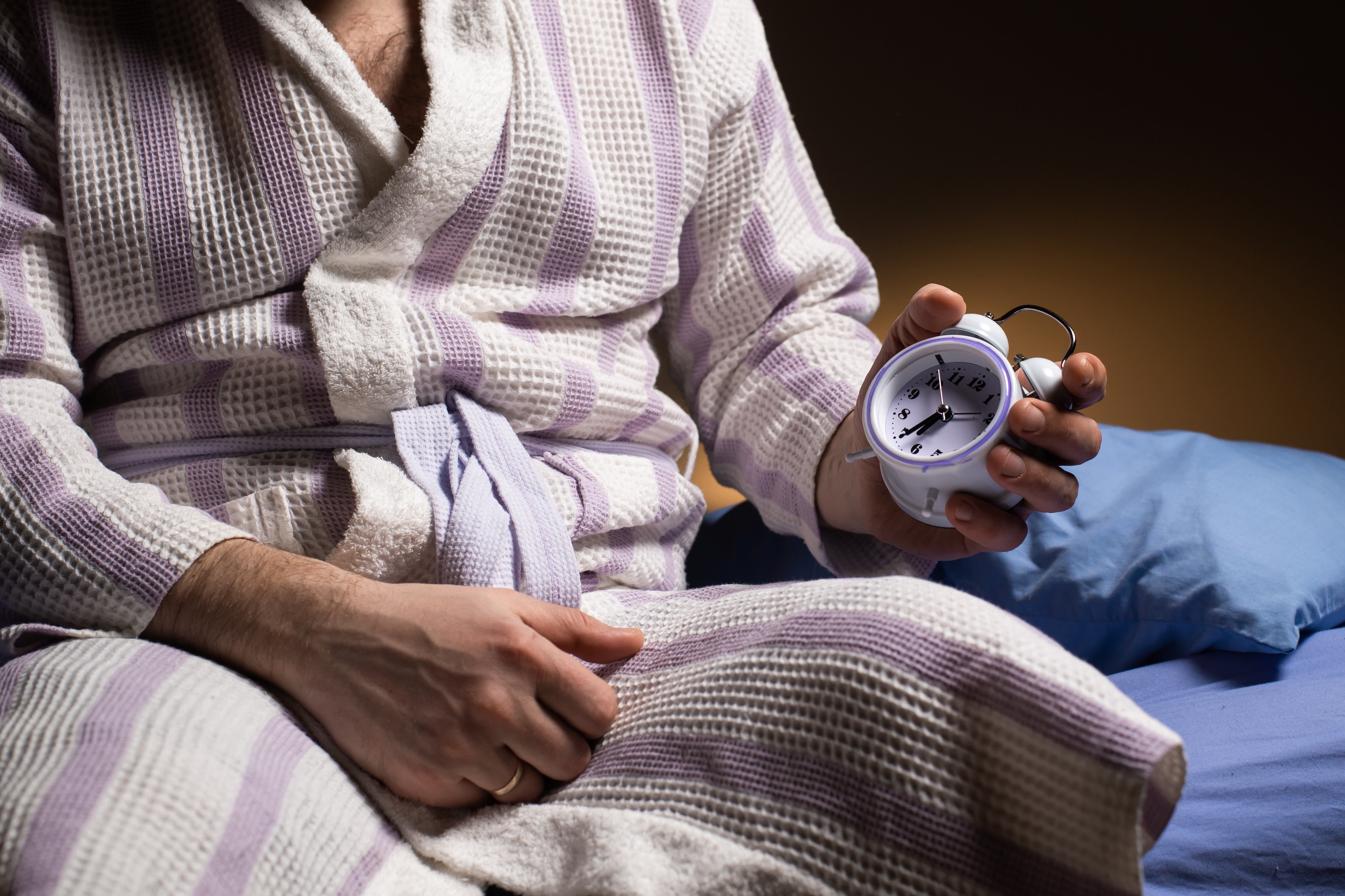What is Low Testosterone? What are the effects and symptoms of low testosterone? Can it be checked?
Low testosterone is the lack of production of testosterone and can be seen in both men and women
Low testosterone is a disease which is seen in older men however men at a younger age have also seen to have low testosterone and the causes may be different medical problems like chemotherapy or other disease that can affect the hormonal levels.
Testosterone is a male sex hormone that is responsible for libido, sexual desire and also testosterone is also important for bone density (making your bones strong and hard), insulin control which helps in controlling diabetes and preventing metabolic syndrome.
When we are younger, the world seems to be at our fingertips. We can do anything, go anywhere, and have the energy to fuel that desire. Late nights followed by early mornings drive both our social and professional lifestyle. We do this year in and year out without questioning the consequences. But as we start to get older, we tend to slow down a bit. Our muscles tend to get sore more readily than it used to from what seems like trivial physical work. On top of that, it takes longer for that soreness to go away.
The drive that once fueled the human powerhouse takes a backseat in such times.
While many factors play into this decrease in the overall drive, one of the primary components is the drop in natural testosterone levels. Testosterone plays a vital role in muscle growth and recovery, and bone strength. It also helps in regulation of libido (sex drive), brain function, hair growth, sperm production, and so on. With its complex role in so many of our daily functions, it’s clear that a decrease in its level would lead to some serious health issues. But this decline isn’t only due to the factors related to the aging process.
In some cases, test levels can be low due to either gonadal deficiency (ovaries in women and testes in men) or pituitary deficiencies that fail to produce what our body needs. This deficiency is defined as hypogonadism and is fairly common. The interesting thing is that many people go years without even realizing that they are suffering from it. Common signs or symptoms include reduced sexual drive, sexual dysfunction/erectile dysfunction (ED), infertility, depression, mood swings, and muscle fatigue/soreness.
Testosterone deficiency in males is related to a considerable decrease in protein synthesis, strength, and fat oxidation, and increased adiposity, which are all considered negative physiological conditions for any individual. The decrease in strength and muscle mass can lead to other health complications. Low testosterone, which affects millions of men, also leads to lethargy, poor sleep, impaired sexual function, depression, and weight gain. These negative effects can have a profound effect on lifestyle. Thus, maintaining normal levels of testosterone is paramount to lean muscle mass and strength.
There’s good news though, getting a test done to determine if low testosterone is the cause of your symptoms is as simple as a visit to the doctor. A blood test is all that’s needed to give a current readout of the total testosterone levels circulating in our blood and the amount of free testosterone that’s readily available for use. If it is determined that the symptoms are indeed caused by low T, there are a few treatment options out there. Testosterone replacement therapy (injection of lab-made testosterone), estrogen blockers (aimed to block excess elevated estrogen levels), and herbal testosterone boosting remedies are the most common approaches to fixing this issue.
Anyone suffering from the above-listed symptoms or someone who is curious about their current testosterone level should seek the help of a medical professional to determine which approach is best for them.
Symptoms of low testosterone:
- Poor energy
- Difficulty Sleeping
- Reduced endurance
- Reduced Productivity
- Irritability
- Symptoms of depression
- Confusion
- Short term memory loss
- Low Libido:
Testosterone plays a major role in libido, As men age they seem to have decline in libido (sex drive). Men with lower levels of testosterone have seems to have higher risk of reduced desire for sex.
- Loss of Muscle mass:
It is a simple logic as testosterone hormone helps in building muscle mass , decrease in testosterone levels can turn muscle to fat.
The cells of Muscle have testosterone receptors and these receptors work by maintain muscle fibres. Once the receptors stop binding and the cause could be low testosterone the maintenance gets disturbed and the muscle starts degrading.
The Fat cells present in the abdomen can create an enzyme known as aromatase, this can convert testosterone into estrogen. Estrone can be responsible for the fat created in your lower chest ,thigs and hips. By increasing testosterone levels one may reverse the accumulation of fat and increase muscle mass.
- Changes on Body:
There can be physical changes on your body because of low testosterone levels. Testosterone helps in muscle mass, body hair and helps in masculine form.
https://www.healthline.com/health/side-effects-of-low-testosterone#physical-changes
Low levels of testosterone in the body can lead to :
- Decrease in bone strength
- Decrease in strength
- Hot flashes
- Increase in body fat
- Less body hair
- Swelling or tenderness in breast tissue
- Tiredness
- No proper sleep:
Sleep apnoea is a medical condition where the breathing gets effected, this is a serious issue and this can disturb your sleep cycle and can also raise the issue like having stroke.
Lower testosterone in the body can cause insomnia, lower levels of energy and also other changes in your order of sleep.
Even if you don’t have sleep apnea, low testosterone can still contribute to a decrease in the hours of sleep. Researchers aren’t yet sure why this happens.
The pros of increasing testosterone levels:
Strong Bones
Mostly in older men as testosterone decreases the bones get weaker and also have a greater risk of acquiring osteoporosis increase as testosterone plays a major role in bone mineral density (bone mineral density is the amount of bone mineral in bone tissue). The test for bone mineral density is done through a simple xray where it measures the amount of calcium and minerals in your bones and as the mineral content in your bones increases there are more changes of you having stronger bones.
Improved mood
Low testosterone in men can lead to depression, testosterone levels depend on the person’s quality of life and if a person leads a poor quality of life it could result in lower levels of testosterone in the body. Research showed that in men with normal decline testosterone levels had no increase in depression levels.
Better mathematical reasoning, spatial processing and verbal memory:
Studies show that the men having higher levels of testosterone have lesser chance of getting Alzheimer’s disease. Men between the age of 34 and 70 had shown improved spatial processing during testosterone treatment.


